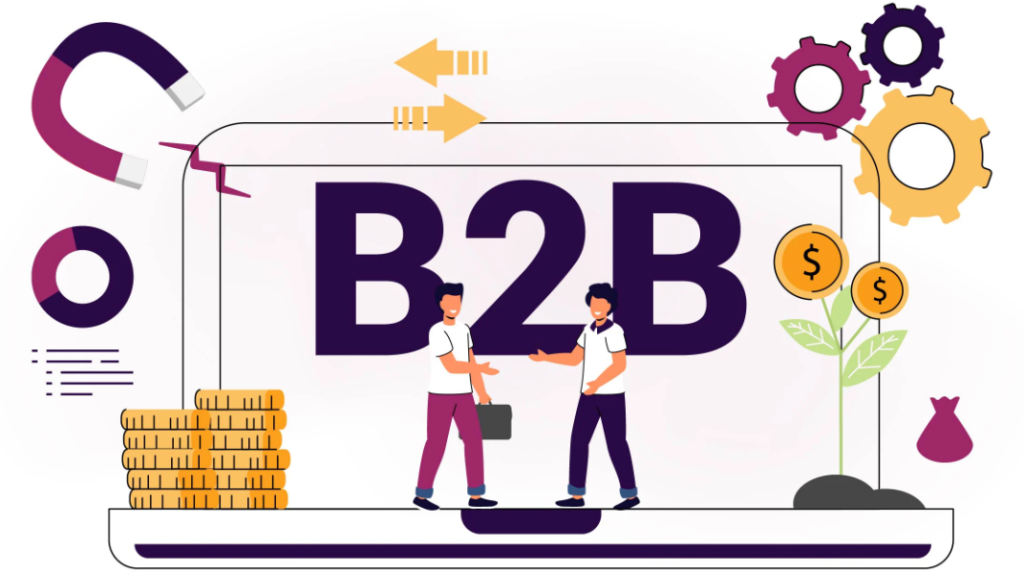
Every business wants more clients. That’s obvious. But wanting and getting are not the same. Many teams are busy—engaged in emails, calls, and LinkedIn—but most of that energy goes nowhere. The problem isn’t hard work. Its direction. And that’s where a b2b lead generation company steps in. Not to wave a magic wand. Not to hand over endless spreadsheets. But to help sort the noise from the few conversations that actually matter.
The Reality of Modern Lead Generation
Selling business-to-business is not what it used to be. Buyers aren’t waiting for a sales pitch. They research. Compare. Judge. By the time someone responds, they’ve likely read reviews, checked pricing, and already formed opinions.
Yet, too many companies still act like it’s 2010. Blast out emails. Dial endless numbers. Spray-and-pray. The truth? Leads aren’t scarce. The right ones are. And the difference between the two is where success lives.
Why Internal Teams Hit a Wall
Think about your sales reps. They’re expected to close deals, manage clients, hit targets. On top of that, they’re told to hunt prospects. That mix almost never works. Burnout comes fast.
And even when they do find time, are they chasing the right people? One bad list, weeks wasted. Talking to contacts who have no budget, no influence, no urgency. Timing is another trap. Too soon—they aren’t ready. Too late—a competitor already closed the door. Without continuous research, those windows slam shut before you notice.
How a B2B Lead Generation Company Thinks Differently
A partner doesn’t think in terms of “how many names can we grab.” They look for intent. Who’s showing signs of need? Who’s signaling they’re in motion?
Picture this. A company suddenly posts dozens of new job ads. That’s often a sign: expansion. Expansion usually means new software, systems, logistics. Or take funding news—fresh capital often equals new spending. These signals don’t shout. They whisper. Internal teams miss them. A seasoned lead-gen partner listens differently.
It’s not just about spotting signals. It’s about context. Send an email at the wrong time and it dies in an inbox. Send the same message when budget talks are happening—it lands. Timing isn’t luck. It’s pattern recognition.
The Shift From Outreach to Conversation
Here’s a mistake: treating lead generation like a lottery. More calls, more emails, more outreach. Surely something will stick. But decision-makers aren’t impressed by volume. They’re drawn to relevance.
That’s the key difference. A b2b lead generation company doesn’t just stuff a pipeline. They build conversations. They notice details—maybe a company merger, maybe a new compliance rule—and tailor the message around it. Suddenly, the email feels less like a pitch and more like a solution. That’s when the reply comes. Because at the end of the day, the goal isn’t “leads.” It’s dialogue. Real discussions that move toward real deals.
Why Outsourcing Creates an Edge
Some leaders hesitate. “But no one knows our business like we do.” True. You know your product better than anyone. But that’s not the same as knowing how to spot opportunities across markets. External partners see patterns. They know what works in tech, what falls flat in manufacturing. They’ve run campaigns, adjusted, refined. That kind of experience doesn’t come from one industry alone.
There’s also consistency. Internal teams have highs and lows—busy quarters, resignations, shifting priorities. A partner stays level. Keeps prospecting even when your team is buried elsewhere. And speed matters too. Hiring, training, setting up tools—it takes months. Outsourcing skips that line. The system is already built. You get results faster.
Adapting to Buyer Behavior in Real Time
Buyer behavior doesn’t sit still. In downturns, cycles stretch. Buyers want proof. Case studies. Guarantees. In boom times, urgency kicks in. They move faster. If your outreach doesn’t shift with them, you lose ground.
A professional partner adapts quickly. If prospects are cautious, they nurture longer. If urgency is high, they strike faster. The point is flexibility. Because rigid playbooks fail in markets that change by the month.
Conclusion:
Most companies don’t fail at selling. They fail at targeting. Talking to the wrong person. At the wrong time. With the wrong message. Fix those three things and sales look completely different. That’s what a b2b lead generation company brings. Not just lists, but insights. Not just activity, but timing. In a crowded, impatient market, those details are the real difference. They open doors that were invisible before. And they make growth not just a goal but something you can actually reach.


